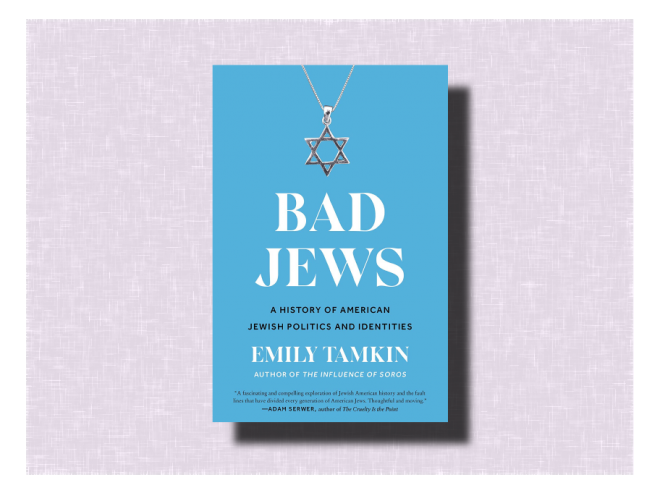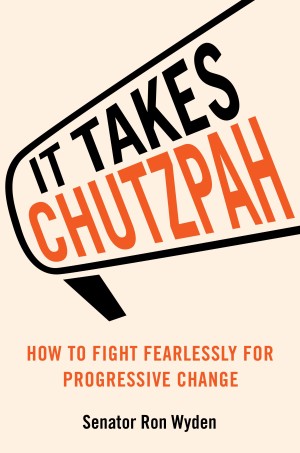Nearly a decade ago, Joshua Harmon’s play Bad Jews caused a stir by displaying petty bickering within a Jewish family over a religious heirloom. The premise: one family member, a young religious woman, stakes a claim to being the rightful inheritor of the keepsake because she has kept the faith. Her atheist cousin, who is dating a non-Jewish woman, relates instead to the Holocaust history of the object. What’s more, he hates what he feels is his cousin’s “holier-than-thou” attitude towards him.
Emily Tamkin’s nonfiction book of the same title travels similar territory. She probes conflicts over Jewish identity over the past hundred years in America from the perspective of today’s hot-button issues. Her arguments speak of the “heteronormative family,” and “elite, self-appointed leaders of the Jewish community.” She returns frequently to questions of race: whether or not Jews are “white,” and how Jews have treated Black people. Tamkin is also troubled by any resistance to intermarriage.
She herself grew up in a home with little Jewish observance. She never had a bat mitzvah; she doesn’t observe the Sabbath or keep kosher. Tamkin asserts unequivocally that “no one person is an authority on being an American Jew.” And she asks rhetorically, “What makes one Jewish life more or less authentic than another?”
Tamkin writes in a very accessible, conversational tone, and enlivens her historical narrative with anecdotes and personal comments. In addition to key political episodes — Rabbi Stephen S. Wise’s equivocal role as an advocate for Jews during the Holocaust; the trial of Julius and Ethel Rosenberg — she animates her account with frequent references to popular-culture figures: baseball legend Hank Greenberg, film director William Wyler, and Barbie-doll creator Ruth Handler. It’s an inviting introduction to American Jewish history.
You might expect a book called Bad Jews to disapprove of the kind of invidious comparisons which the phrase implies, but that’s actually not the case. In fact the second half of the book names the “bad” Jews, replacing the old stereotype of who’s “bad” — perhaps Jews who don’t go to synagogue, or who intermarry — with a new one.
In Tamkin’s view, the “bad” Jews are neoconservatives, Benjamin Netanyahu, Henry Kissinger, “Ashkenormative” Jews, Jews who supported Donald Trump, rabbis who oppose intermarriage, organizations which are invariably pro-Israel, and “gatekeepers” who discriminate against Jews of color. Her heroes are the socialists of a century ago; religious pluralists; BernieSanders; Jeremy Ben-Ami; Peter Beinart; Bend the Arc; and Jewish supporters of Black Lives Matter.
To her credit, Emily Tamkin is also self-aware. Thinking about the phrase “the worship of false idols,” she wonders “whether people might not look at me and I think was doing the same thing.” Ultimately, she concludes that what she personally wants from Judaism is “a sense of connectedness and tradition and meaning, and also a sense of discomfort and challenge.” Readers, especially those with progressive leanings, will find a lot of food for thought in her honest, sobering reflections.
Bob Goldfarb is President Emeritus of Jewish Creativity International.




